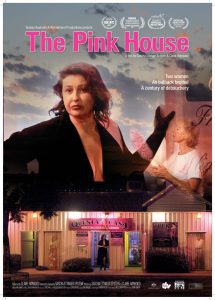Sustainable is a documentary which looks at America’s capitalistic, high production food industry and asks if there is a better way of doing things. It loosely follows several personal narratives within the agricultural industry, all of whom operate by wholesome and sustainable methods. It’s fairly broad terminology. Sustainable throws around grand platitudes and ideals without ever really defining the terms or measures of success. Emotionally charged language is prominent and the film has hearts in spades, though the meat and bones are missing from it.
The film echoes much of the same buzz and health messages found in the media currently. To summarise the 90 minutes the film pushes the message that local and organic produce is superior to the chemical and high volume methods currently favorable. Subtly critical of capitalism the film aggrandizes alternative methods of farming which are apparently superior in yield, sustainability, quantity, taste and any other value one can think of. However it doesn’t answer the question of why these alternative measures aren’t adopted by more farmers in a cut throat market. It’s a fair question and the film has no problem showing facts favorable to its agenda while supplementing the rest with emotional arguments.
While these words may portray the film in a negative light, the message does seem legitimate. A definite and purposeful bias exists within the film, but that message isn’t a conspiracy. There are some insightful factual gems, though few and far between. Mostly the film consists of aging hippies and tattooed hipsters talking about the superiority of organic produce. The most heavily featured is Marty Travis, an Illinois farmer that the film comes back to again and again. It’s easy to see why. He’s well spoken, rational, passionate and quite clearly knows the industry. A poster child for orangic, locally focused and sustainable farming. He spends his time educating and encouraging co operation between local farmers to ensure quality outcomes for themselves and their consumers.
A watered down version of the 2008 documentary Food Inc., Sustainable is idealistic and commendable though not nearly eye opening enough. It begins by reminiscing on the days when people were connected to their food and what a shame it is we’re divorced as to how food arrives on our plate. At the end of the film though one can expect to possess that same ignorance. The few factual gems like 91% of farmed Iowa land producing corn or soy isn’t backed up by why that is so negative. Much of the language is emotional such as a farmer returning to his former family farm, now industrialised, and explaining it didn’t ‘feel right’. Later the same farmer now silhouetted by dusk, talks about how a cancer patient once came up to him and thanked him for organically farming, while soft piano plays. This is noble and value based viewing but lacks the venom to its sting.
Sustainable will be playing at the inaugural Melbourne Documentary Film Festival.
Sustainable (Documentary Trailer) from Hourglass Films on Vimeo.




Just to clarify a few points you made.
You wrote, “It doesn’t answer the question of why these alternative measures aren’t adopted by more farmers in a cut throat market.” – The film explains that the external costs of industrial agriculture are not factored into the production equation. It also states the crop subsidies paid by the government and the importance of relationship-based marketing. That’s the answer.
You also wrote, “The few factual gems like 91% of farmed Iowa land producing corn or soy isn’t backed up by why that is so negative.” – The next two sections that comes after that stat go on to explain why it is negative – increased chemical use, soil erosion, soil runoff and lack of water absorption.
You mention this is a watered down version of Food Inc. and you could not be more false. Food Inc. does a great job finding the bad guys and pointing out the corruption between the USDA, FDA and large agro business. Sustainable does a wonderful job sharing the POSITIVE story of a group of people trying to do what is MORALLY correct rather than what is FINANCIALLY motivated. You were correct in one area though, it does lack venom because that is not the intention of this film, to ridicule, insult or put down anyone…..INCLUDING THE AGRO BEAST that has decimated our food system. Yet some how you find a way to do just that, insult and ridicule, a film because it was written and produced with a moral cause.